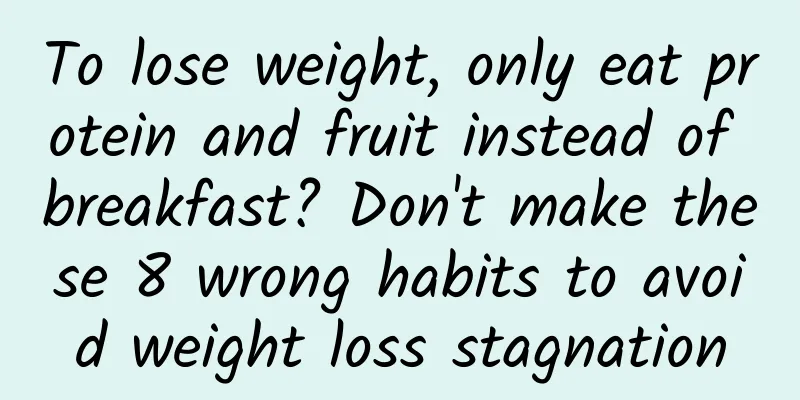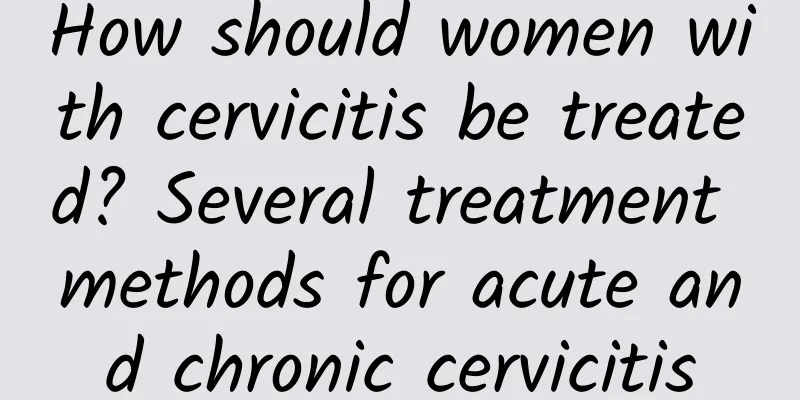Take probiotics before and after a big meal to reduce fat absorption and prevent bloating? Pharmacist debunks 7 probiotic myths

|
"Eat? Or not eat?" I'm afraid of getting fat if I eat, but I feel greedy if I don't eat. Do you often have the above-mentioned struggle between self and desire when facing delicious food? I believe that most people hope to enjoy a big meal without worrying about gaining weight. Recently, there has been a rumor that "taking some probiotics before and after a big meal can aid digestion, prevent bloating, and even reduce fat absorption." But do probiotic supplements really have such magical effects? Let us hear what professional pharmacists have to say! The intestine is the "second brain" of the human body. The body's immunity, emotions, autonomic nervous system and brain functions are all related to it. Pharmacist Ma Shangrong said that in addition to being an important digestive organ in the human body, studies in recent years have found that the intestine also has the most complex nervous system after the brain, which is why the intestine is known as the "sub-brain" and "second brain." Relevant research journals at home and abroad have also confirmed the existence of a "gut-brain-bacteria axis" in the human body. The health of the intestines will further affect the functioning of the body's immunity, emotions, autonomic nervous system, and brain. Therefore, exploring the relationship between intestinal health and organs and tissues throughout the human body, as well as how to effectively maintain the diversity and balance of intestinal flora, has become one of the most interesting research topics for contemporary scholars. As a result, the word "probiotics" has instantly become a hot topic in the health food industry in the past few years. Just open the search engine and type in "probiotics", and you will immediately see a dazzling array of related products that claim different effects and functions. No matter how much supplements you take, it will be useless if you eat the wrong foods! Pharmacists help you decipher 7 probiotic myths, so you can take them correctly Recently, there has even been a saying among the public: "Taking some probiotics before or after a big meal can aid digestion, prevent bloating, and even reduce fat absorption." But are the functions of probiotics really so magical? How should we eat probiotics to truly reap the benefits? In order to help the public better understand, Pharmacist Ma Shangrong specifically answers the above-mentioned effects, as well as the 7 most common questions and myths about probiotics: Myth 1: Taking probiotics before or after meals can help prevent bloating and indigestion problems? Pharmacist Ma Shangrong said that the first thing he wants to emphasize to everyone is that the general probiotic products available on the market are not medicines, and it is impossible to achieve the expected symptom improvement effect mentioned above by taking probiotics in a short period of time! The reason why modern people are prone to bloating and flatulence problems is mainly related to high pressure in life, unbalanced diet, too short meal time, and a love of chatting while eating, which causes indigestion. If people consume too much refined starch such as bread and cakes, and carbonated drinks in their daily diet, and have bad habits such as chewing gum, it will aggravate the occurrence of gastrointestinal bloating. Therefore, pharmacist Ma Shangrong once again emphasized that if people just blindly take probiotics without improving the fundamental problem of bad living habits, it will ultimately be a temporary solution and the problems of abdominal bloating and flatulence will still recur. Myth 2: Taking probiotics before or after a big meal can help you lose weight? When the gastrointestinal flora and environment of the human body are not good, it is indeed easy for too much food residue and waste to accumulate in the intestines, causing a sharp increase in the number of inflammatory substances and free radicals in the body; this in turn affects the body's metabolism and absorption capacity, and increases the incidence of problems such as edema and obesity. However, pharmacist Ma Shangrong also reminded that it is worth noting that at this stage there is still no significant medical evidence that can directly prove that supplementing with probiotics can help treat obesity. Although it is generally believed that maintaining a healthy intestinal flora has many benefits for human health. However, in order to maintain the balance of intestinal flora, it is not only necessary to supplement good bacteria, but it is even more important to moderately supplement prebiotics (probiotics or prebiotics), that is, foods that produce probiotics. Therefore, if you want to lose weight successfully, instead of relying on probiotics, it is better to develop a balanced and proper eating habit, and combine it with regular exercise and daily routine, which is the key to effective weight loss. Myth 3: To prevent good bacteria from being killed by stomach acid, probiotics must be taken immediately after meals to be effective? Regarding when should probiotics be taken, before/during/after meals, so that they can be truly absorbed and utilized by the human body. Pharmacist Ma Shangrong said that since the development technology of health foods such as probiotics has become quite mature in recent years, it is actually no longer necessary to take probiotics immediately after a meal; instead, the dosage will vary depending on the dosage form and characteristics. If the chosen probiotic product is not acid-resistant, it is recommended to take it during or immediately after a meal before gastric acid is secreted, as this will give it a higher survival rate. However, if the probiotics you buy are advertised as being particularly acid-resistant and alkali-resistant and not easily destroyed by stomach acid and bile, there are no special restrictions. You can take it on an empty stomach before meals, or one hour after meals when stomach acid secretion is highest without any impact. In addition to explaining the differences in the way of taking, pharmacist Ma Shangrong mentioned that generally speaking, the packaging of commercially available probiotic products will indicate the recommended dosage and appropriate time of consumption, and it is recommended that the public take it according to the instructions in the product manual for the safest use. If you are still confused, it is recommended that you consult a professional pharmacist or nutritionist before taking the medicine. Myth 4: When buying probiotics, is it more effective to choose live bacteria rather than dead bacteria? When buying probiotics, are live bacteria more effective than dead bacteria? In this regard, pharmacist Ma Shangrong further explained that this is not necessarily the case; rather, it will vary depending on the characteristics of the bacterial strains, and each bacterial strain is suitable for a different method. The only thing to note is that depending on whether people choose live or dead bacteria, the storage methods will also be different. If people choose live bacteria products, they should pay more attention to storage. When the temperature exceeds 30°C, the activity of probiotics will drop rapidly, and the higher the temperature, the faster the activity drops. It is recommended to refrigerate after purchase. In contrast, dead bacteria products are generally resistant to high temperatures, stomach acid, choline, and long-lasting storage, and are less restricted in the storage environment. Therefore, pharmacist Ma Shangrong recommends that people should look around, evaluate carefully, and choose according to their own needs when making a choice. However, he also reminded everyone that when you don't know whether the probiotics you bought are live bacteria or dead bacteria, in order to avoid high temperature destroying the activity of the bacteria, it is recommended to take them with room temperature water below room temperature so as not to affect the health care effect. Myth 5: Are you worried that drinking coffee, tea, and taking antibiotics may damage your stomach, so you quickly take probiotics to protect your gastrointestinal tract? Many people have often heard that timely supplementation of probiotics can protect and help repair the gastrointestinal mucosa. So they thought they were smart and thought that as long as they took probiotic products to neutralize the effects of coffee, tea, and antibiotics, they would be able to protect their gastrointestinal tract. However, pharmacist Ma Shangrong reminds that consuming probiotic products together with caffeinated beverages such as coffee and tea will reduce their activity; it is recommended that the two be taken at least one hour apart to avoid irritating the stomach and intestines and greatly reducing the effect. As for antibiotics, their main function is to inhibit bacterial growth. If you use antibiotics while taking probiotic products, all the good bacteria in your stomach will be killed immediately. However, pharmacist Ma Shangrong suggested that since the main purpose of antibiotics is treatment, people should still prioritize therapeutic drugs, take them properly according to the doctor's instructions, and complete the course of antibiotics! If you really want to take probiotic products, it is recommended that the time of consumption should be at least 2 hours apart from antibiotics to avoid interfering with the activity of probiotics. Myth 6: Can probiotic supplements take effect immediately after taking them? Pharmacist Ma Shangrong said that if you want to effectively improve the intestinal flora ecology, long-term conditioning is necessary! Generally, pure probiotics that do not contain other additional irritating ingredients (senna leaves, aloesin) must be taken continuously for at least 8-12 weeks. Only after the good bacteria have successfully colonized the intestines can the expected health effects be achieved. Therefore, he reminded the public not to give up easily after taking probiotics for 2 or 3 days and feeling that there seems to be no effect. This would be a real pity. However, if you continue taking it for more than 2 months and there is no obvious change in your body, then it is recommended to consult a professional pharmacist or nutritionist for further information; to clarify whether it is because of the poor intestinal environment that the probiotics cannot reproduce smoothly after entering the intestines. And further actively adjust improper living and eating habits to maintain a good intestinal environment. Myth 7: Will long-term use of synthetic probiotic products cause the intestines to lose their ability to reproduce beneficial bacteria? Becoming dependent on probiotic supplements? Pharmacist Ma Shangrong emphasized that no matter whether probiotics are naturally produced or artificially synthesized, they have a certain ability to reproduce once they are ingested by the human body. Therefore, as long as people supplement their daily diet with an appropriate amount of probiotics, the intestines will make good use of the probiotics regardless of their source, and there will never be a situation where the intestines gradually lose their own ability to reproduce probiotics. As for why some people feel that every time they take probiotic health products, their intestines seem to be particularly smooth and their digestion and absorption functions are better. But once I stopped taking probiotic supplements, my intestinal function seemed to stop, so I began to wonder if I was addicted to and dependent on probiotic supplements. Pharmacist Ma Shangrong explained that the reason why people have such feelings actually has nothing to do with addiction. In fact, there are many reasons that lead to this result. For example, unbalanced diet, stress, irregular work and rest, drug effects and other factors can cause the intestinal flora to lose balance. Therefore, if people do not actively adjust their living habits and their daily diet is seriously nutritionally unbalanced, the digestion, absorption and peristalsis functions of the intestines will naturally be affected and stop without sufficient nutrients. As a result, it seems that without additional supplementation of probiotic health products, the intestines cannot function normally. 【Pharmacist's Tips】: In addition to answering the 7 most common probiotic myths in the market, pharmacist Ma Shangrong also reminded that if you want to maintain intestinal health, it is not enough to just take probiotic health products and supplement probiotics! At the same time, it is also necessary to provide sufficient food for probiotics to allow good bacteria to grow and reproduce more smoothly. Therefore, people must not forget that they should develop a balanced habit of consuming fresh fruits and vegetables in their daily diet to replenish the body with sufficient enzymes, as well as prebiotics such as oligosaccharides and dietary fiber. This is the fundamental way to maintain intestinal health in the long term. |
Recommend
Tips for obese elderly people to lose weight without hurting their bones
The elderly are no longer teenagers of 17 or 18, ...
Are bilateral ovarian cysts serious?
Whether bilateral ovarian cysts are serious usual...
What are the main causes of cervicitis?
Cervicitis is the most common gynecological disea...
We can use laparoscopy to diagnose ovarian cysts
We can use laparoscopy to diagnose ovarian cysts....
What are the symptoms of anterior uterine fibroids?
What are the symptoms of the anterior wall of ute...
Rest is the key to care for endometrial tuberculosis
Endometrial tuberculosis is a common disease that...
Busy losing weight after the New Year! The secret to weight management: nutrition + exercise
The warm atmosphere of the Spring Festival reunio...
Is a 27 day menstrual cycle normal?
Is a 27-day menstrual cycle normal? A 27-day mens...
What causes ectopic pregnancy?
Ectopic pregnancy is a dangerous acute abdomen in...
Oatmeal and rice porridge recipe to lower cholesterol and lose fat
Anne Hathaway had actively lost weight for the mo...
Too little sleep may trigger your fat gene
Do you always feel that you don’t get enough slee...
Several common causes of dysmenorrhea among female friends
Dysmenorrhea is a common female disease, and dysm...
What causes uterine fibroids? What are the symptoms of uterine fibroids?
What causes uterine fibroids? Understanding their...
Experts introduce you to the treatment of adnexitis
Adnexitis is a headache for many female friends. ...
What are the causes of pelvic effusion in women?
The presence of fluid in the female pelvis is a n...









